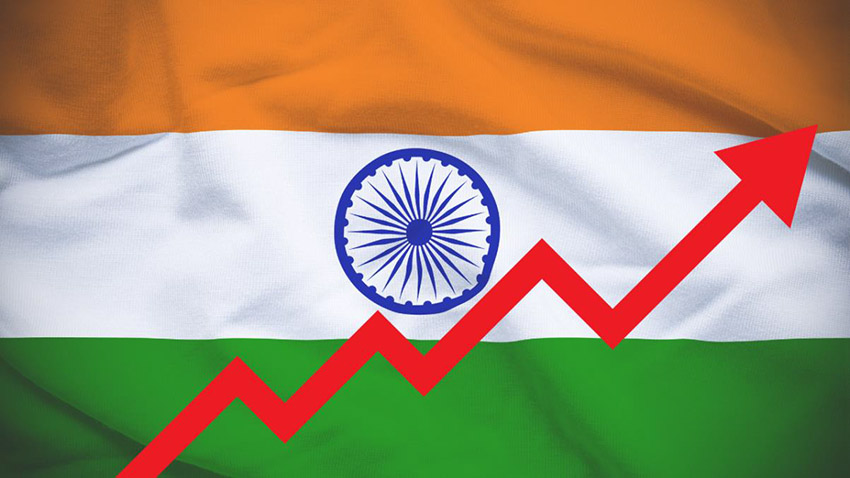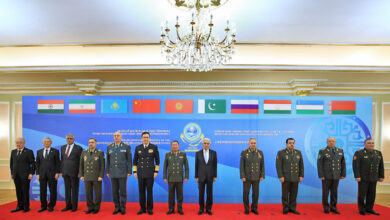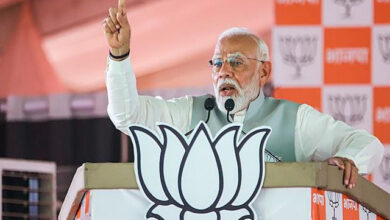INDIA – A Preferred Investment Destination over China to Global Investors: Survey
By R. Anil Kumar
-
India’s ability to turn its economic expansion into corporate profits makes it a better prospect for investors than Japan or China, according to the latest Bloomberg Markets Live Pulse survey
-
Indian equities attracted $25 billion in net inflows for the year through March-Survey
-
Key stock indexes in both India and Japan have climbed to records this year following a rally driven by rapid economic growth in the case of India, and the gradual return of inflation, along with corporate reforms in Japan- Bloomberg Markets Live Pulse survey
-
Almost half of 390 MLIV Pulse survey respondents selected India as the best investment among the three Asian giants
-
The survey is a vote of confidence in India Inc. as the world’s largest democracy is headed to general elections carried out over seven phases from April 19 until June 1
-
The government of Prime Minister Narendra Modi has more than tripled its infrastructure allocation from five years ago to more than 11 trillion rupees ($132 billion) for the 2025 fiscal year

Bloomberg, April 15. India’s ability to turn its economic expansion into corporate profits makes it a better prospect for investors than Japan or China, according to the latest Bloomberg Markets Live Pulse survey.
The powerful rallies in Indian and Japanese equities as China’s market has slumped have reset Asia’s financial market landscape, providing global investors with three competing poles for regional allocations.
Even with China’s attractively low stock valuations, and Japan’s progress in improving corporate governance, almost half of 390 MLIV Pulse survey respondents selected India as the best investment among the three Asian giants.
The survey is a vote of confidence in India Inc. as the world’s largest democracy is headed to general elections carried out over seven phases from April 19 until June 1.
Which has the most compelling investment case over the next 12 months?
“There are many reasons to prefer expensive India equities over cheap China ones such as better transmission of GDP growth into earnings growth,” it said.
A “better track record of delivering consistent earnings growth and supportive geopolitical environment” further bolster the case for Indian shares, the survey has highlighted.

Key stock indexes in both India and Japan have climbed to records this year following a rally driven by rapid economic growth in the case of India, and the gradual return of inflation, along with corporate reforms in Japan.
Indian equities now trade at around 23 times next year’s expected earnings, exceeding even the US, and outpacing the 17 for Japan and about nine for China, according to data compiled by Bloomberg based on MSCI Inc.’s indexes.
The main gauge of Chinese equities has tumbled about 40% from its peak set three years ago as deflation and a rolling property crisis have weighed on the economy. More than half of the survey respondents said they expected China’s equity market to underperform India and Japan’s over the next 12 months.
Indian equities attracted $25 billion in net inflows for the year through March, compared with just $5.3 billion for China, according to data compiled by Bloomberg.
The tailwinds behind Indian shares include the growing population and optimism the growing middle class will feed into higher corporate profits.
“India is the best market to own,” say experts. Indian equities are likely to play a large role in regional benchmarks, they said.
Indian shares now make up 18% of the MSCI Emerging Markets Index. China’s 25% weighting is well down from its high of more than 40% a few years ago.

Infrastructure in India was highlighted as a particular bright spot in the survey by 41% of the respondents. The government of Prime Minister Narendra Modi has more than tripled its infrastructure allocation from five years ago to more than 11 trillion rupees ($132 billion) for the 2025 fiscal year. PM Modi is projected to invest 143 trillion rupees to modernize critical infrastructure in the six years through 2030.
India’s infrastructure and capital goods bellwether Larsen & Toubro Ltd. is trading at a price-earnings ratio of about 30 times. At the same time, other firms such as PNC Infratech Ltd. and JSW Infrastructure Ltd. are still trading at or below their 10-year average valuations.
The South Asian nation has also fast emerged as an alternative to China for global manufacturing, with the likes of Apple Inc. beefing up its production facilities in the country.
PM Modi’s party faces a national election this year, and he has made India’s accelerating economy a major part of his pitch. He is expected to return as Prime Minister with a strong majority to deepen infrastructure investment and manufacturing.
In China, meanwhile, slowing economic growth, the spectre of deflation and the ongoing real-estate crisis are likely to deter investors, the report says.
“There’s very little incentive to allocate to China,” it said. “We’re still in a deflationary environment, and as long as we don’t seem to be trending upwards – which would create more revenue growth – there is very little appeal.”





